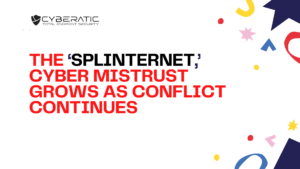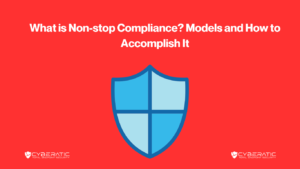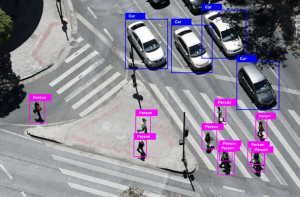7 Reasons Why Cybersecurity as a Service is the Best Way to Protect Your Business
You’ve heard the hype surrounding cybersecurity as a service (CaaS), but are you still wondering if this new way of protecting your business really makes sense? Though there are many security options out there, CaaS offers businesses the most protection in terms of manpower, technology, and budget. With these seven reasons why CaaS is the best way to protect your business, you’ll realize just how beneficial this innovative option can be for your company.
Simplicity
Cybersecurity as a Service
For businesses with limited resources or knowledge, using an outside provider offers a simple solution to what can often be very complex problems. By working with someone who specializes in your industry, you’ll also benefit from years of experience and insight into how other companies have handled similar situations. And because these specialists offer expert advice and tools based on clear-cut business needs rather than products that only address symptoms of an underlying problem, you’ll end up saving time and money in the long run.
An Overview of What Cybersecurity as a Service Can Do for Your Company When considering cybersecurity, you need look no further than Security as a Service. It’s an easy and cost-effective way to protect your business’s sensitive data from malware, viruses, phishing attacks and more. So what does it mean? And why should you choose it? Let’s dig in!
Best in Industry Support

As more and more businesses come under attack from cybercriminals, many business owners are turning to security service providers (SSPs) for help. SSPs like Acronis cloud backup offer business owners several distinct advantages over traditional cybersecurity solutions. These include
A Predictable, Affordable Monthly Bill
As cloud security solutions gain in popularity, companies can now get an affordable monthly bill instead of large capital expenditures up front. Plus, there’s no long-term contract required, so you can switch providers if you ever want to upgrade your solution or if you’re not happy with how your provider is doing.
An In-House Team
This option can be cost-prohibitive and difficult to manage for any business without enough in-house expertise. It’s also harder for organizations that have physical locations since it might mean employees have to travel from city to city. All of these drawbacks may make running an in-house team more than you can handle, especially if you run a smaller business. There’s another way: cybersecurity as a service (or managed security services). This option allows small and medium businesses (SMBs) like yours to get all of their cybersecurity solutions with one provider—often at a cheaper price point than an in-house team and with many more offerings than other third party solutions.
Peace of Mind
With security solutions often expensive and complicated, it’s not always easy for business owners and managers to protect their networks from cyber-threats. While there are many advantages of security outsourcing, one of its greatest benefits is peace of mind. With professional help at your disposal, you can rest assured that your data and network will be safe from all types of threats, malware and hackers.
Security Should Be an Ongoing Process, Not One Time Fix
Cybersecurity as a Service
It’s easy to think that once you’ve protected your data with cybersecurity as a service, you’re done. But it doesn’t work that way. If anything, cyber threats become more and more sophisticated over time, which means your security team needs to stay on their toes and identify new threats before they harm your business or its customers. For example, it may seem like everyone knows what ransomware is at this point – but there are still some people who don’t understand how dangerous it can be and how fast it can spread when you least expect it. A good security team needs flexibility so they can continue identifying potential risks before they affect your business.

how to Secure Cyber-Physical Systems
If a cyber or physical occurs, CPS will not be protected. Three key factors are at blame: system variety, dependence on sensitive information, and widespread deployment. An attack on these systems might have far-reaching consequences if it is not properly modelled. CPS security may be protected in a number of methods,








